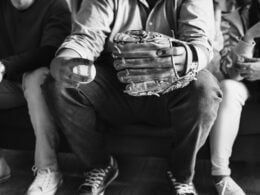As attention on global warming and other critical environmental issues mounts, interest in the perceived marketing benefits of “going green” is on the rise as well. That has many entrepreneurs asking, “What can my business do to make a difference?”
2007 winners of the “Greenest” category in the StartupNation Home-Based 100 ranking posed that exact question from the get-go before starting up Sweet Onion Creations in February 2007. The co-founders, Jake Cook and his wife Lee, embody the higher-road ideals of running a business that’s green and growing.
“It was kind of a guiding light for us from the start,” says Jake.
While most of the companies grabbing the headlines, and credit, for helping protect the environment through their business practices are large corporations such as Wal-Mart, the green business movement has hit home-based businesses across the United States.
More and more entrepreneurs are deciding that this is a route they want to take with their enterprise. If done right, these owners realize they can attract more clients and even make more money in the long run through cutting their energy-usage costs and increasing employee morale.
The Bozeman, Mont.-based Sweet Onion Creations makes three-dimensional models of buildings for architectural firms. After receiving a computer-generated rendering, or even hard copies of blueprints, the Cooks construct the models in their garage using computer-imaging software and customized ZCorp machines that actually print the models in 3D. They then send the finished products to their customers.
The environmentally-friendly practices come into play with every aspect of the business.
To conserve on heat use during the winter months, the Cooks framed and insulated a small box inside their garage to store their 3D printer and recycling station, and they heat that “box” with a small space heater. This drastically cuts down on their electrical usage and costs. Further, the lights in the garage are reclaimed from a local remodeling project that would have otherwise been destined for the landfill.
Then there are the materials they use. Models are constructed out of a white powder that looks like a corn starch and sugar water is used to fuse the models together. Per model, only about 3% of the materials used go to waste. And Jake calls the raw materials “almost food grade,” saying, “The chemicals are very safe.”
For packaging, the Cooks use biodegradable “peanuts” and recycled boxes. But they don’t stop there. “Our goal is to spark a conversation with our clients and hopefully raise a bit of awareness,” Jake touts. So they drop a small card into each package, letting clients know their model was built in such a way that it minimized the impact on the environment.
The Cooks also purchase renewable-energy credits, a process in which a business owner can purchase alternative, or “clean,” energy from an electricity provider. “Our carbon use for shipping products and running our machines is offset through the Bonneville Environmental Foundation, which allows us to purchase Green Tags from the company’s renewable energy facilities,” Jake says with pride.
They opted to support 100% wind farms in the Pacific Northwest, one of the options Bonneville provides. According to the Cooks, that has translated to 2,000 kilowatt hours of electricity and offset an estimated 2,800 lbs. of carbon dioxide. “That’s equal to planting 0.38 acres of trees or not driving a car for 2,862 miles, the typical number of miles someone drives in three months.”
Lastly, it’s Sweet Onion Creations’ standard policy to take back any model that a client might no longer want. That keeps the product out of the landfills and lets the Cooks reuse these rejects as educational tools.
One misperception that many business owners have about going green is that there are higher costs involved. Jake says that hasn’t been the case so far for his business, which was started with a $30,000 investment in equipment and materials. (The Cooks do all of the computer work, from Web maintenance to converting images into physical models, themselves.)
Think going green might sap you of valuable profits? The opposite may be the case. For the Cooks, it might have actually helped them land accounts they otherwise might not have.
“We’ve pitched against other companies that aren’t going green and won,” Jake says. While the Cooks have always relied on the quality of their service to clinch deals, their “greenness” has contributed. “When we get into conversations about our green practices, customers are pretty hyped up on it.”
The biggest challenge the Cooks now face is trying to make their company more sustainable. At this time, they’re trying to find a more environmentally friendly finish to put on the models in order to harden them and make them safer for shipping. They’ve had no luck so far—innovators take note—but are still searching for a solution that’s plant-based or has similar properties.
Other than running an enterprise that strives to be environmentally friendly, Jake says they are faced with the same challenges all entrepreneurs deal with on a day-to-day basis. “You’re trying to do everything – be the trash man and the IT person – so we’re just trying to get all of our ducks in a row.”
More featured 2007 StartupNation Home-Based 100 articles:
- HB 100: We shine the spotlight on home-based entrepreneurs
- Journey from office to home spurs MSI’s success
- Boomer winner ‘lured’ into a home business
- Best Financial Performer runner-up writes, sells, soars
- Child Shield innovates to save children
- One person’s grunge is another person’s livelihood
- Snoloha proves slackers can cash in too
- Nashville Lappy Hour gets wacky with dogs and drinks
View complete 2007 rankings
Learn about the 2008 Competition





